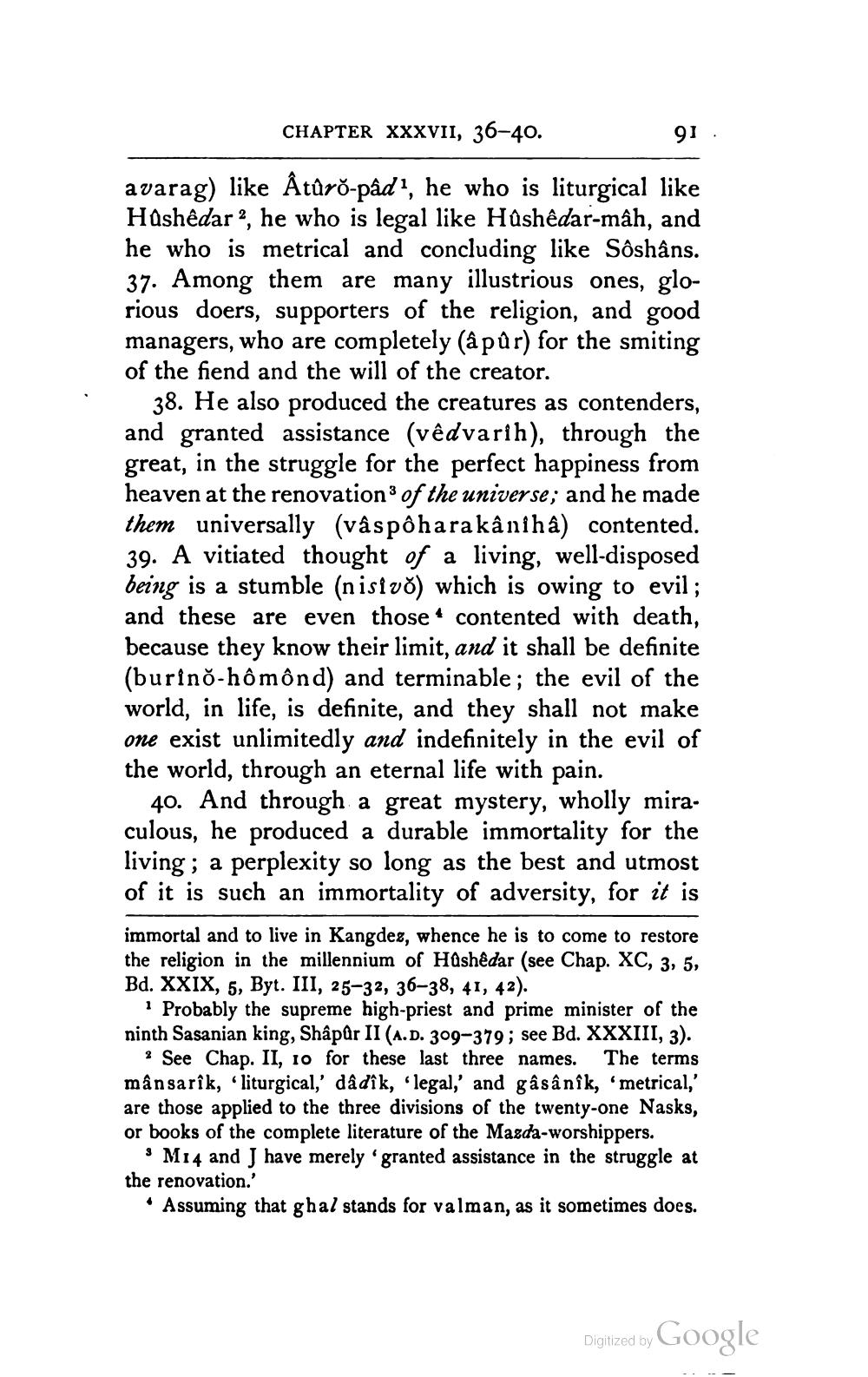________________
CHAPTER XXXVII, 36-40.
91.
avarag) like Atûrõ-pâdı, he who is liturgical like Hashêdar?, he who is legal like Hûshêdar-mâh, and he who is metrical and concluding like Sôshâns. 37. Among them are many illustrious ones, glorious doers, supporters of the religion, and good managers, who are completely (â pûr) for the smiting of the fiend and the will of the creator.
38. He also produced the creatures as contenders, and granted assistance (vêdvarih), through the great, in the struggle for the perfect happiness from heaven at the renovation of the universe; and he made them universally (vâspôharakâniha) contented. 39. A vitiated thought of a living, well-disposed being is a stumble (nisivo) which is owing to evil ; and these are even those * contented with death, because they know their limit, and it shall be definite (burino-hômônd) and terminable; the evil of the world, in life, is definite, and they shall not make one exist unlimitedly and indefinitely in the evil of the world, through an eternal life with pain.
40. And through a great mystery, wholly mira. culous, he produced a durable immortality for the living ; a perplexity so long as the best and utmost of it is such an immortality of adversity, for it is
immortal and to live in Kangdes, whence he is to come to restore the religion in the millennium of Hůshedar (see Chap. XC, 3, 5, Bd. XXIX, 5, Byt. III, 25-32, 36-38, 41, 42).
Probably the supreme high-priest and prime minister of the ninth Sasanian king, Shâpur II (A.D. 309-379; see Bd. XXXIII, 3).
? See Chap. II, 10 for these last three names. The terms mânsarîk, liturgical,' dâdîk, legal,' and gâsânik, 'metrical,' are those applied to the three divisions of the twenty-one Nasks, or books of the complete literature of the Mazda-worshippers.
3 M14 and J have merely granted assistance in the struggle at the renovation.'
• Assuming that ghal stands for valman, as it sometimes does.
Digitized by Google




